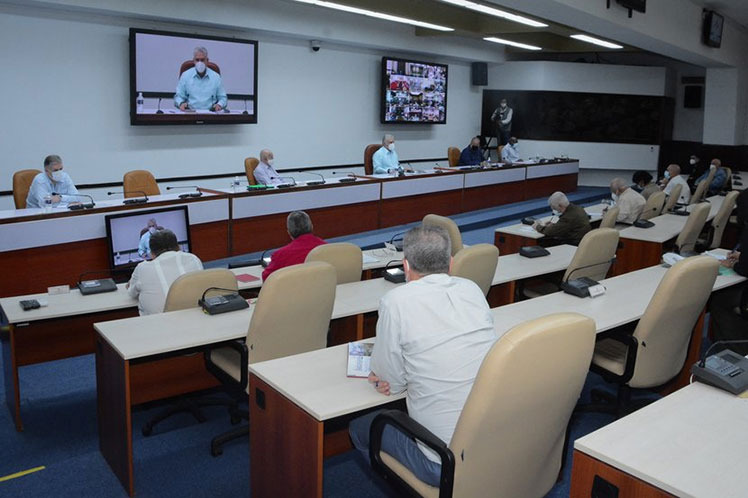
reunion
Havana, Apr 15 (RHC)-- Cuban President Miguel Díaz-Canel acknowledged Non-State Management Forms (FGNE) contribution to the country's economy and ratified the government's will to develop these forms of management further.
During a meeting with self-employed workers, non-agricultural cooperatives, and executives of the entrepreneurial system, the president praised these actors' impact on production, services, and employment.
According to the Presidential website, the head of state described these workers as a complement to the state economy, a value considered in the guiding documents for the nation's progress.
He said that the promotion of such activities has its antecedents in the discussions on the sector that took place as part of the sixth and seventh congresses of the Communist Party of Cuba and the debates that will continue in the 8th Congress, beginning this Friday.
Prime Minister Manuel Marrero highlighted the changes generated from updating the Cuban economic model since 2011 and noted that some 600 thousand people are currently employed in the private sector and contribute to the treasury.
According to the head of government, the elaboration of legal norms that will make it possible to add other activities and unite several of them through projects with the same license is about to be concluded.
We are sure that this will allow us to leap in the search for solutions to unsatisfied demands by the population, with a significant contribution to local development, he said.
To this end, the Prime Minister insisted on implementing the provisions properly, eliminating obstacles, which will require the effort of the municipal authorities and institutions responsible for the processing, approval, and control of such projects, he said.
He also referred to the analysis of the experiences and mistakes made in non-agricultural cooperatives' operation; he also mentioned the prospects for the promotion of micro, small and medium-sized enterprises (MSMEs).
In this regard, Marrero informed that 'the regulations have been created that will allow us to make proposals so that, once approved, we can gradually begin to develop this new form of management.

